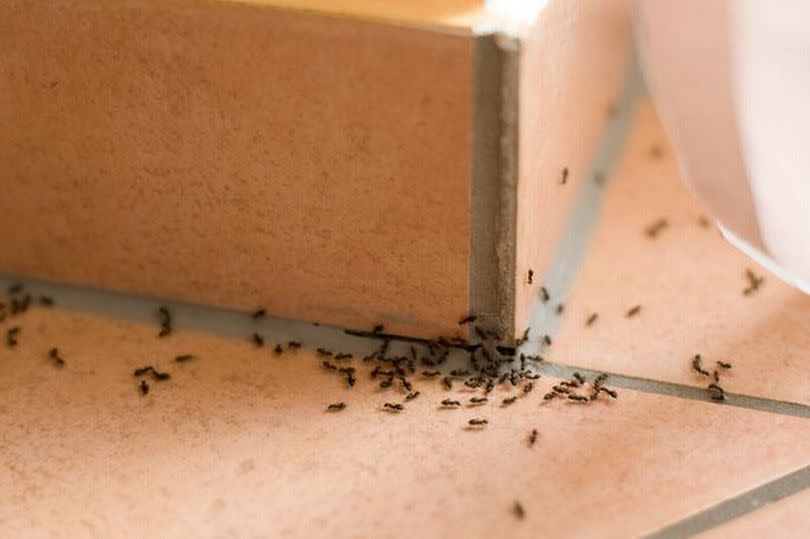The 90p kitchen staple that kills ants and woodlice in your home

As spring arrives, so do the unwelcome houseguests, scurrying along skirting boards and windowsills, particularly targeting kitchens where they find food aplenty.
However, green-fingered enthusiasts have stumbled upon an unlikely hero in the battle against these pests - a common kitchen staple that costs a mere 90p at any major supermarket.
Aspartame, the artificial sweetener found in a variety of diet beverages and low-calorie treats, has been the subject of various health scares but remains approved for human consumption after numerous studies confirmed its safety, reports the Express.
READ MORE Gardeners 'banned' from using weedkiller in garden throughout May
Yet, this ingredient spells doom for ants and woodlice, with reports suggesting that less than £1 worth of a non-brand alternative can effectively dispatch these critters. The science behind it is simple: artificial sweeteners like aspartame contain no calories, meaning ants that consume it return to their nests, feast on it, and ultimately perish from starvation at least that's the prevailing theory
Gardeners sharing tips on Reddit have observed similar outcomes. One user advised: "You should know that if you have an ant infestation that Saccharine, and Aspartame found in artificial sweeteners will kill off most ant nests because there's no nutrition and ants will starve."
But be warned, this method isn't guaranteed to work every time. As BeTripleG warns: "Just a warning from someone who battled an ant infestation in June: Don't use too much bait or you could start a feeding frenzy, which temporarily makes the infestation much worse. Also, by enticing them to a food source (toxic or otherwise) you may inadvertently lead them to a better food source in your home."
Usually, it's highly recommended that insects should only be killed as the last possible course of action and that they should be left undisturbed in their garden habitats to maintain thriving insect populations and contribute to the food chain.

 Yahoo News
Yahoo News 
